
List Building Doesn’t Have To Be Such Hard Work! We are big fans of keeping our list building efforts simple.
Creating professional lead magnets such as whitepapers, presentations, infographics, etc are often hard, expensive, and take way too long.
That’s why we’ve always been such huge fans of using contests to grow our lists.
But there’s another extremely simple way to build your list that works just about as well as contests – quizzes and calculators.
How Popular Are Quizzes and Calculators?
Really popular!
Check out some of these stats:
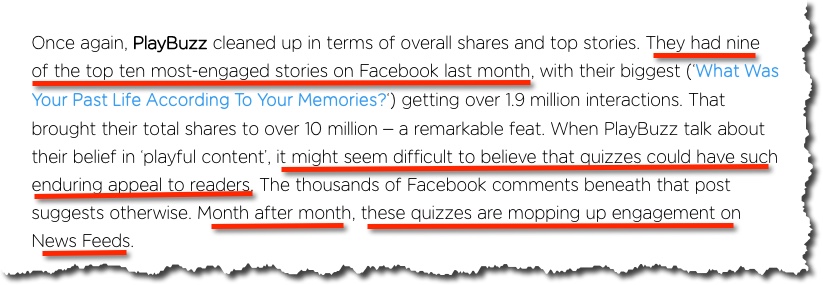
Or those stats for mortgagecalculator.org.
I wonder how much they are making from those affiliate ads each month?!
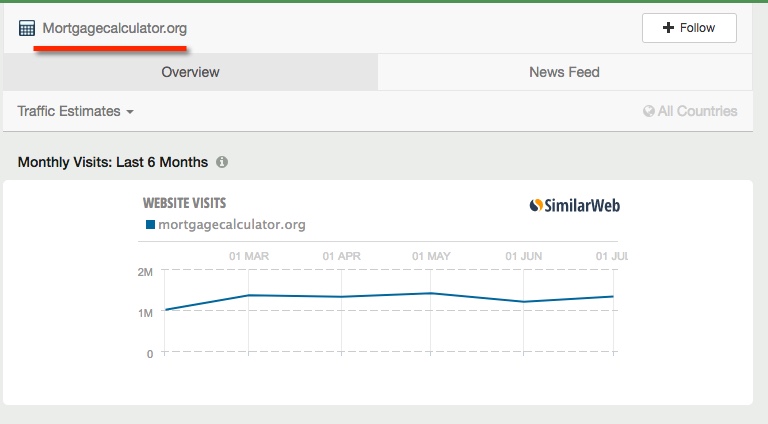
In pretty much any major industry you look into, you’ll find quizzes and calculators being used extensively to attract traffic and generate leads.
Mortgages, auto loans, debt relief, weight loss, kitchen remodeling…you name it.
Why Do Quizzes and Calculators Work So Well?
First, they are engaging. We are in a fight for the attention of our audience, and you can’t sell them anything until you first get them to engage.
Quizzes get enormous amounts of engagement.
The second reason is that quizzes and calculators have personalization.
Because you can provide a different ‘outcome’ to each person based on the inputs they provide, you can make personalized product recommendations.
Personalized product recommendations are shown to increase click through rates by 14% and conversion by 10%.
Here’s a great blog post on the psychology behind why people take and share quizzes.
Here are some other reasons they are so popular and effective:
1. They Provide Instant Gratification:
Unlike courses, webinars etc., calculators require much less time investment on the part of the customer but still provide a lot of value up front. Hence, the conversion rates are extremely high!
2. They Are Interactive:
Since they are inherently dynamic, calculators are more interesting than static blog posts or courses. They speak to the customer directly. This makes them fundamentally more share-worthy on social media.
3. Build Trust:
Calculators provide the transparency that strikes trust from the start. Many companies hide their pricing or value add behind a wall, but with a calculator, you are able to directly address a customer’s major concerns.
4. Reusable Content:
They’re marketing campaigns with no expiry date – unlike content that’s read once and might be forgotten the next day.
5. Sales Productivity:
They increase the productivity of your sales team by providing rich data about the customer in the form of their preferences and needs, not just their phone number and email. This allows sales to really target their offers and calls.
6. They’re Sharable:
Quizzes and calculators lend themselves to being shared with someone else – either because they are fun, add value that someone else will benefit from, or both. The impact of this virality can mean tons of free traffic and additional leads.
Click Here To To Find Out What Makes Your Quiz Go Viral
What Kind of Quiz or Calculator Should You Build?
The sky really is the limit here.
The right kind of quiz or calculator depends on your imagination, your product needs and the messaging direction your team wants to take.
Quizzes may be best suitef for B-to-C traffic and offers, while calculators may be best for B-to-B, although that’s definitely a generalization as both are being used effectively in either case.
According to Buzzfeed, quizzes that feel personal and that you can relate to work best.
Clearly they have used quizzes to generate massive amounts of traffic, which they now use to sell ads and products.
Playbuzz, one of the biggest publishers of online quizzes, has four types of quizzes:
Personality Quizzes
You’ve seen these all over social media. ‘Tell us what you ate last night and we’ll tell you how likable you are.”
Polls
Share your opinion on a subject and see how you fit into the rest of the results.
Trivia
Show how big your brain is and then share to brag to your friends!
Gallery Quiz
Identify things by their pictures.
Clearly these are working pretty well for them!
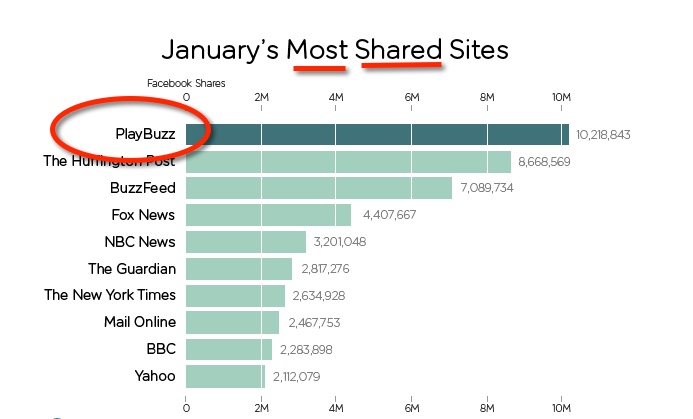
And here are few types of calculators that have been successful:
1. Simple Cost Calculators:
These are the best props to spring up while you’re rambling away at an interested client about your product. A quick tap here and a few inputs there- and voila! you have an estimate. The key here is to address the needs of the customer, not of your own business. So instead of pricing your own product, help address the customer’s concern. So if you’re building apps, rather than saying “Get a quote from [company name]”, say “How much you should be paying for app development?”.
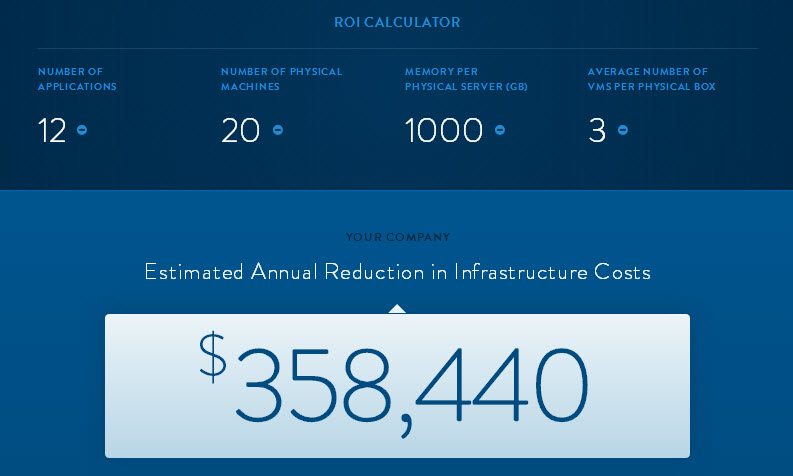
2. RoI Calculator:
The quintessential question your marketing and sales needs to answer is what is the return on investment on your product, what is the value proposition in hard numbers. Every customer has this question and the answer depends on various factors and attributes which make RoI estimators some of the best converting calculators.
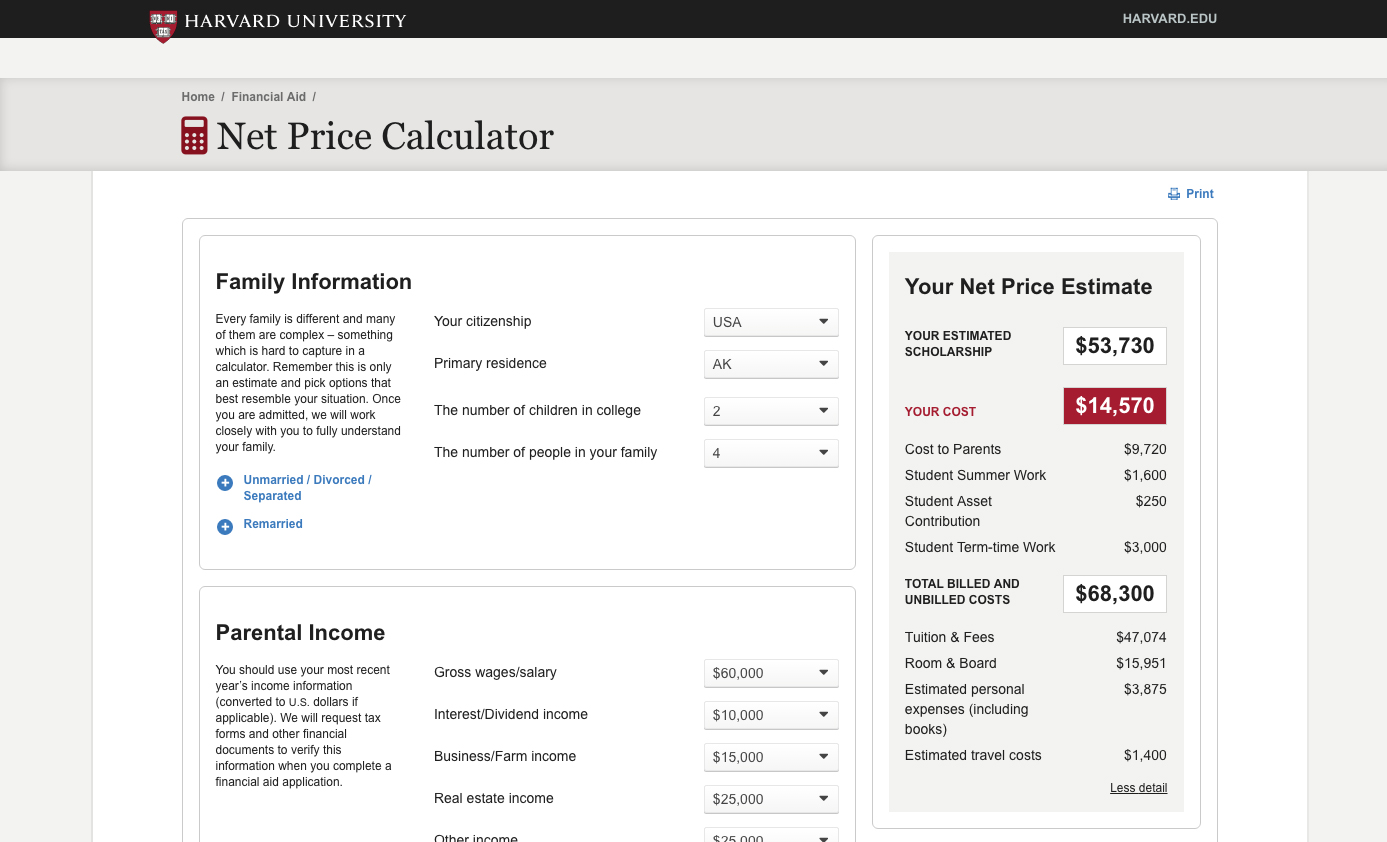
3. Savings/Financial Aid Calculators:
A few years ago, universities across the world found out that Financial Aid tools were an average college applicant’s best friend. That’s why every other university in the world now has its own net price calculators. These are simple tools to help prospective students and their guardians figure out what a higher education might actually cost them.
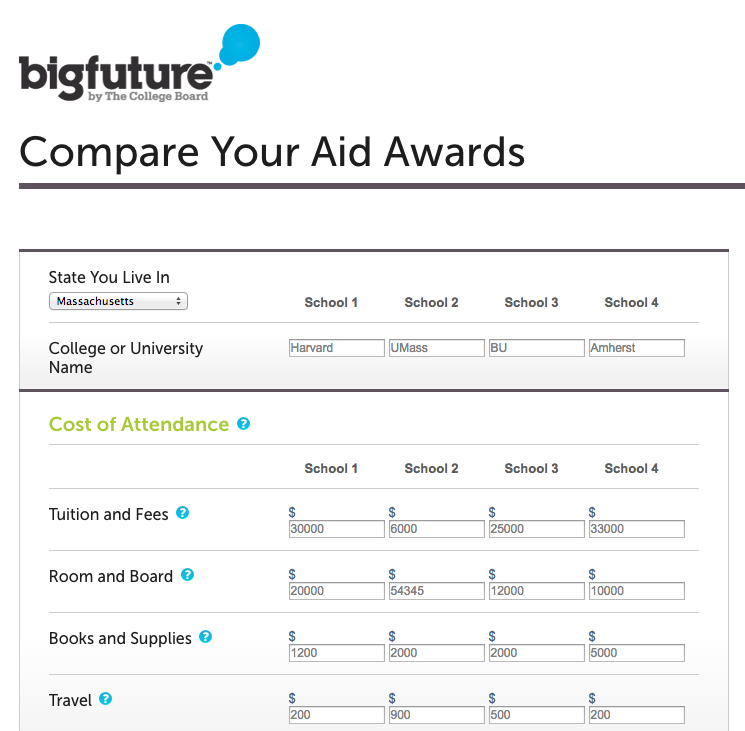
4. Comparative Calculators:
Businesses have used this type of calculator in many ways. Usually, third party aggregators use it to help visitors decide for themselves what product suits their needs the best. For example, the US College Board helps students make an informed decision by letting them compare total spendings for each school with a calculator.
5. Real Time Calculators:
These are calculators that show the results while the questions are being answered as opposed to showing results after all the questions are answered. Such calculators let the users play with various inputs and see how those inputs affect the final result in real time. Say you were building a cancer risk calculator. You might want to let the users see how their body weight might affect their risk of getting cancer. So they can play with the calculator and see what weight they need to be in order to minimize the risk of cancer.

6. Complex Calculators:
If your prospects are struggling with making buying decisions owing to a complex thought process, then you’ve found your goal. Designing a calculator that provides your buyers with as much information as possible to help them easily consider all their options will be your best bet. Here’s an example of HubSpot’s pricing calculator clearly breaking down their price schedules.
As you can see, there are a lot of possibilities – it’s really up to your imagination.
Optimizing For Lead Generation
Quizzes and calculators are both fantastic for list building and lead generation because people get so engaged and want to get their results.
That being said, if your aim is to increase brand awareness or traffic, you don’t need to worry about capturing leads. Focus more on generating shares.
For instance, The New York Times decided to create a student loan calculator to connect with its young professional and student readers. The NYT was not selling a service related to the topic but offering a free product with the intention of deepening their relationship with their audience.

But given that most of our readers likely want to have a strong lead generation mechanism, here’s what you can do to maximize conversion
1. Don’t Make It Scary Long
For example, you have to admit this lead gen form looks scary because of the sheer amount of data it asks you for. The rule of thumb is anywhere between one to four form fields. Anything beyond that and you’re risking bounces.
2. Don’t Ask For Too Much
Generally you want to ask for what you need, and nothing more. Here are some considerations:
Full Name: It’s easy and expected
Email or Phone: Do you really need both?
Company Website: Most questions will get answered here.
Industry or Position: Helps you gauge the decision making power of your lead and then build a buyer persona around it.
Industry Specific Questions: If you really need to, ask them but make them check boxes or sliders rather than text input.
4. Ensure Autofill Works
Ensure that your lead capture form accepts autofill. Forms that auto populate themselves are more likely to be filled and submitted.
5. Design The Overall User Experience
Take care of the surrounding space on the page that contains the form. Give the form some room to “breathe”, and use directional cues to highlight important inputs.
It’s a good idea to highlight elements that reinforce what marketers call the ‘statement of benefit’ – basically what your lead will get in return for filling the form.
Test Your Headlines
Headlines are critical to increasing clicks and shares! In fact, a study of over 1,000 quizzes revealed that just a few headline formulas dramatically increase the shares and virality of quizzes!
4. Test Position of the Lead Generation Form:
The most aggressive approach is to ask for the user’s information before you display the results. The more brand-friendly approach is to ask after you’ve given them their results and they have a ‘feel good’ feeling about you. Test!
How To Build Quizzes and Calculators Quickly and Easily
You may be thinking that building these quizzes and calculators is going to be hard, slow and expensive.
Up until recently, you’d be right!
We have just started using a very powerful tool called Outgrow because it’s very simple and fast to build great quizzes and calculators.
And it’s currently on sale for a HUGE discount, so we grabbed a copy and recommend you do as well if you want to use quizzes and calculators yourself.
Click Here to learn more about how you can save on Outgrow now.
We shot a quick demo video showing you how easy it is to use Outgrow to create powerful quizzes and calculators:
We highly recommend Outgrow – it’s proven to be very well-developed and easy to use.
Check out the example quiz below built with Outgrow in 5 minutes and take action!
Put quizzes and calculators to use for you and your clients to start growing your lists fast!
Click Here To Get Started With Quizzes & Calculators Today
All the best,



